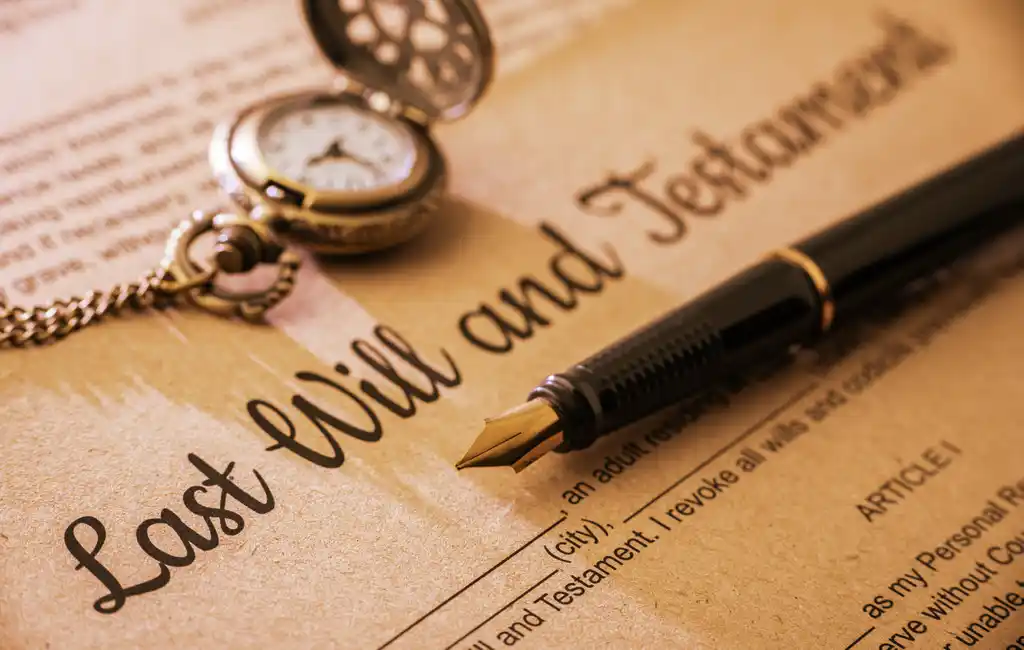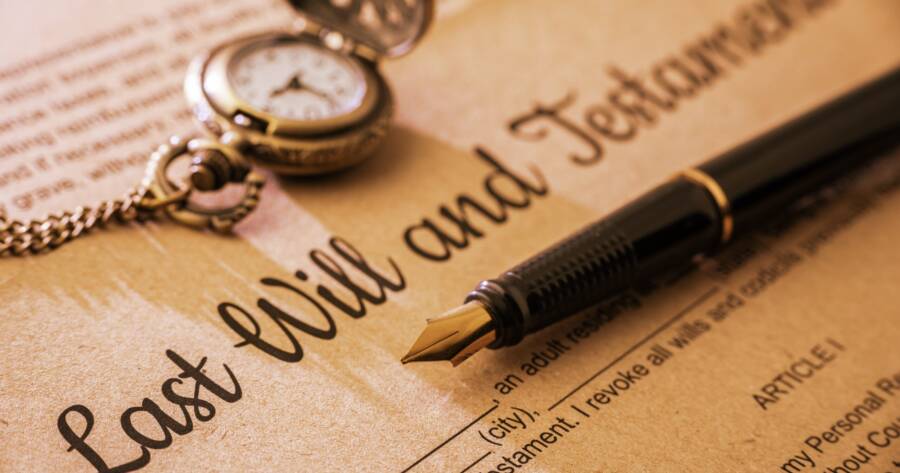Having a will is important. It represents your last voice after you’re gone. That document ensures that your wishes are carried out after you die. Most importantly, it will provide guidance on how to distribute your money, property, or other assets. In short, it’s your last action to make sure that your loved ones and dependents are taken care of when you are no longer around.
As gravely important as having a will (and estate planning in general) is, the reality is that half of Americans over the age of 55 don’t have a will at all. Not having one can be problematic. The uncertainty often cause significant issues for families after someone inevitably passes away. Here’s what happens when you die without a will. (Or “intestate.” as the legal community refers to it).
State Control
If you die without a will in the United States, you essentially cede control of your estate to the state where you lived at the time of your death. State laws will determine who your heirs will be. The state will also choose the executor of your estate, which means it might not be the person you would have wanted.
Inheritance laws differ from state-to-state. However, most state statutes generally favor spouses, registered domestic partners, and blood relatives when it comes to determining who your heirs are. Unmarried partners, friends, and charities tend to get nothing should you die intestate.
However, some of your assets could still pass to people of your choosing. A life insurance policy with designated beneficiaries would not be subject to your estate being distributed, for example. Named beneficiaries will get proceeds of an insurance policy without the state becoming involved. The same can be true with 401(k) and other retirement accounts, if you have designated beneficiaries.
On the other hand, if you don’t designate any beneficiaries, all proceeds from your estate will roll into one pot of money. It will then be distributed according to state laws. Any real estate you own will be sold and the profits put into your estate for distribution as well. If you have a complicated family situation (ex-spouse, step-kids, etc) or any sort of real estate holdings, having a will is incredibly important.
Child Guardians
While a will is an important document for anyone, it’s essential if you have minor children. Your will is the main way in which you designate a guardian for them in the event of your passing. You will also provides financial support and protections for them when you’re gone.
Without a will, the courts where you live at the time of your death will appoint a guardian. The judge will gather information about the children, their family circumstances, and the deceased parents’ wishes. They, they try to make a good decision in terms of naming a guardian. The judge is required by law to act in the best interests of the children. That said, there is no guarantee that the court will pick the person you wanted. Without a will, that decision is out of your hands.
Create a will with clear directions about who should become your children’s guardian. This will go a long to prevent any disputes or family infighting, should your surviving relatives not agree on who should care for them. If there is a financial benefit to taking in your children (and hopefully there is), you’d be surprised how selfish and greedy some families can get.
Tax Implications
Taxes can become quite complicated if you pass away without a will. Luckily, most Americans will not be hit by the federal estate tax. The first $5.45 million of an estate is exempt from that particular federal tax. However, many states have their own estate tax in place. Their exemption levels are typically much lower than the federal government’s. In Minnesota, for example, any estate worth more than $1.6 million is taxed at rates of up to 16%.
Without a will, you could lose out on important tax benefits. One example is the marital deduction, which lets your surviving spouse inherit your entire estate tax-free. That situation could leave your spouse in financial straits after your death. In North Carolina, to use another example, your estate will be divided equally between your spouse and your kids if you don’t have a will. Each portion of your estate will be subject to taxes. It would be best to not put your family in such a difficult financial situation. Protect your family’s future by having a will that clearly allocates how your money and assets should be distributed.
Dividing Property
In addition to taxes and guardianship, property can also be a very complicated issue if you pass without a will. That’s especially true if you own property in different states. For example, let’s say you own a house (primary residence) in one state and additional real estate, like a vacation cottage, in another. Without a will, the law around who will inherit those assets is controlled by two different states. This can get very complicated and messy. The end result may be two different sets of beneficiaries, creating conflict among your surviving family members.
In many cases, the courts will simply sell off the properties. They’ll add the proceeds to the pot of money that comprises your estate. That’s not a good solution if you’re hoping to keep the summer vacation property in your family. Or if you want to leave your house to your children. The two states might also disagree on how, exactly, the money will be distributed. Or to whom it’s distributed.
As a general rule, the more complicated your finances and assets are, the more you should have a will. Don’t let potentially outdated state laws dictate how a lifetime of life work is given away.
The Bottom Line
Having a will is important for each and every adult. Remember that a will is a legal document that protects the money, property, and assets you’ve worked hard to accumulate over the course of your lifetime. More importantly, a will helps protect your family and loved ones after you are gone. Without an updated and complete will, you are leaving your heirs and survivors vulnerable. Whether you only have a few thousand dollars to your name, or multi-millions, do yourself this small favor: create a will.
Give yourself some peace of mind. Make sure that you have a will in place. Then, update it every time you have a major life event or your financial situation changes. Most financial experts suggest you re-examine your will every three-to-five years, just to keep it current.
The investment of creating a legally binding will is worth it in the long run. While there are online platforms that enable you to create your own do-it-yourself will, we don’t recommend them. While they might be a good place to start without spending any money up front, it’s advisable to have a lawyer prepare your will. They will ensure it’s compliant with both state and federal laws. It only costs a few hundred dollars, so there’s really no reason not to have one.
 Shutterstock
Shutterstock







